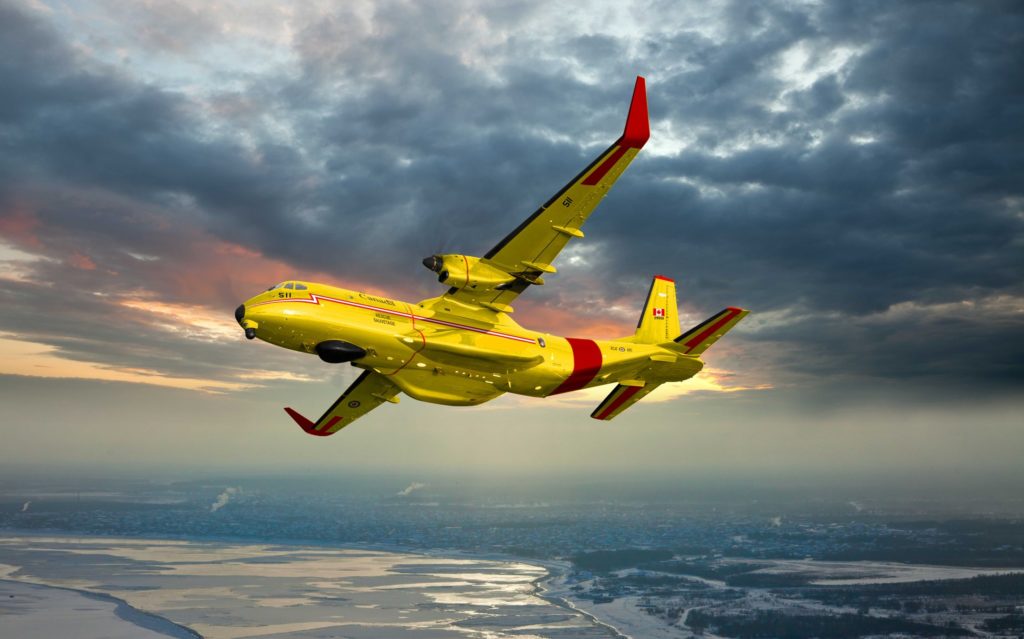 This article originally appeared in the Hill Times.
This article originally appeared in the Hill Times.
By Richard Shimooka, May 30, 2022
A few weeks ago, the Royal Canadian Air Force (RCAF) announced that its new search and rescue (SAR) aircraft, the CC-295 Kingfisher, will not reach Initial Operational Capability (IOC) until the 2025-2026 timeframe—a decade after it was selected in a competition. In truth, it is doubtful the aircraft will ever enter into service.
SAR is far from being a “sexy” military capability. However, it is one of the more publicly appreciated and crucial functions that the RCAF provides on a day-to-day basis. So it is with some irony that the Fixed-Wing Search and Rescue (FWSAR) aircraft replacement remains among the most disappointing procurement programs in Canada.
The program’s failures are rooted in its origins over 20 years ago. Canada’s primary SAR aircraft at the time was the venerable De Havilland Buffalo. Its range and speed was limited, so it was supplemented by the CC-130 Hercules to cover areas that the Buffalo could not reach. This was problematic: the Hercules was and is one of the most heavily used capabilities in the RCAF, and much more costly to operate. As a result, by the early 2000s, it was envisioned that the FWSAR program would lead to a single fleet replacement aircraft capable of covering all of Canada’s SAR response needs.
At the time, the Department of National Defence could only find one aircraft that could meet its requirements, the Leonardo C-27J. The aircraft was fast enough and possessed the range, size and cockpit visibility to cover all of Canada’s FWSAR needs. Another option would be to acquire additional Hercules, though these aircraft were seen as providing too much plane for the country’s SAR needs. A third was the CASA (now Airbus) C-295. At the time, this aircraft was found to be ill suited—it was not particularly powerful, had insufficient speed and range to cover all of Canada’s Area Of Responsibility (AOR) in one crew day, lacked cockpit visibility essential for maneuvering and posed difficulties for SAR technicians to move around inside when fully equipped with rescue gear. Because the C-295 was not able to meet a number of Mandatory Requirements, it was ruled out too.
The C-27J was to be sole source selected, and the government, prepared an Advanced Contract Award Notice (ACAN), that gave potential competitors time to respond if they could meet the requirements. It was likely that the C-27 would be selected. Yet, about a week before the ACAN, the entire purchase was scrapped due to circumstances that remain unclear today.
Progress on Buffalo replacement stalled until 2014. In that year, the Conservative government also unveiled the Defence Procurement Strategy (DPS), a series of reforms intended to improve outcomes after several controversies over the prior decade. Two areas were of particular relevance to FWSAR.
First, it was part of a broader effort to move away from sole-sourcing procurements and mandate competition in all but exceptional cases. Second, it was related to the Industrial and Technical Benefits (ITB) policy. Previously, meeting the offset requirements were a pass/fail. The DPS enabled ITBs to now play a role in a platform’s selection—it could be up to 25 per cent of the assessment criteria. The percentage is misleading. If all other factors are equal, the 25 per cent could be decisive in a selection. This occurred with FWSAR, which was one of the first major programs to utilize the new procurement system.
Under the mandate of creating competition, the requirements were loosened significantly, allowing the C-295 to compete and, thus, blunting the C-27J’s advantages. The FWSAR aircraft no longer had to be able to reach all parts of Canada’s AOR within one-crew day. Airbus also promised over 30 modifications that would allow the aircraft to meet the minimum requirements. These changes allowed the C-295’s industrial benefits package to be a decisive factor in its selection, which was backed by the aviation conglomerate Airbus.
Since winning the competition, the C-295 has struggled to meet its promised performance. Modifications increased the aircraft’s weight and is now underpowered for its missions. In the event of an engine failure, such as during take-off or when flying through mountainous canyons, the aircraft might not have sufficient power to operate safely. This, along with a number of other major deficiencies, such as with its avionics, operation in icing, paradrop limitations and problematic centre of gravity, severely impacts the aircraft’s ability to operate effectively, and even safely, in its given role.
Consequently, the recent announcement to push back the IOC to the 2025 timeframe is a clear punt by the current government to offload these problems until a later date. While some of the deficiencies are fixable (e.g., avionics), the problems around weight, power and icing capabilities are very likely not— as they are fundamental to the aircraft’s design. There is a significant chance that Canada will need to scrap the entire $2.9-billion purchase, and seek a different outcome.
The debacle has broader significance for Canadian defence procurement beyond SAR, especially with Canada potentially spending tens of billions of dollars in new programs to defend the Arctic. By artificially trying to create competition where one cannot effectively exist, and demanding as much domestic offsets as possible, this lays the foundation for future failures on much larger projects.
Richard Shimooka is a senior fellow at the Macdonald-Laurier Institute.





